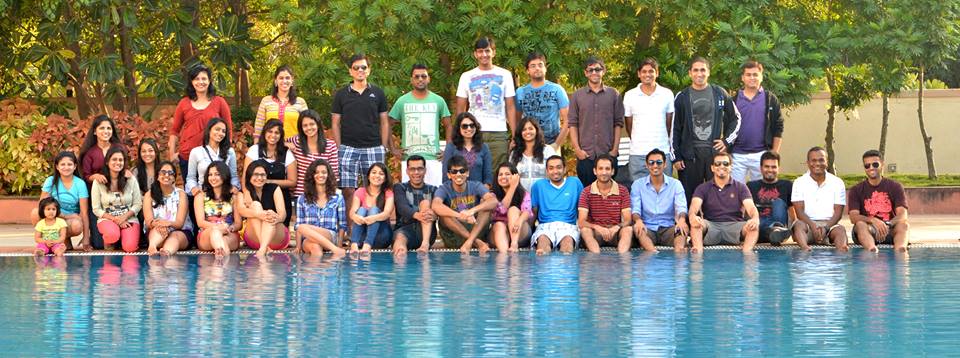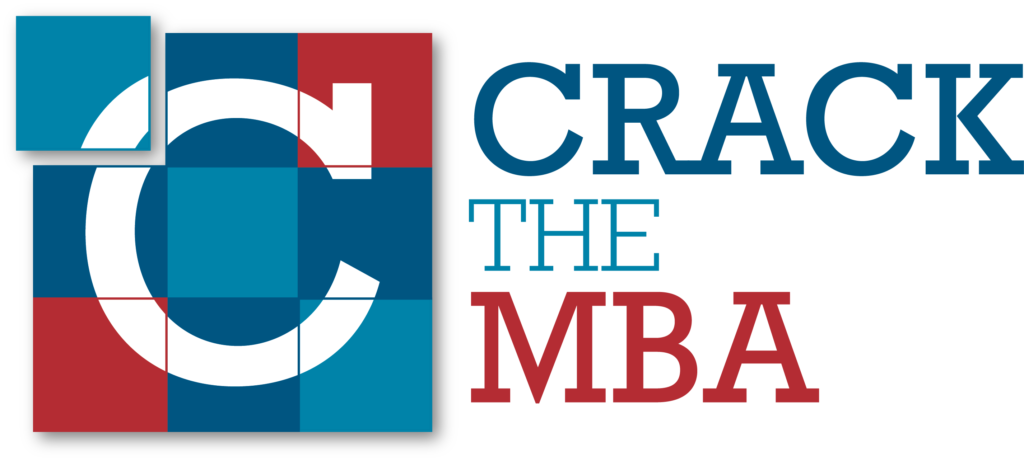In this interview series, we’ve read about numerous aspects of Sahil’s journey at ISB here, here and here. The journey would not be complete until we delved into Sahil’s recruiting experience.
But first we look at GMAT, one-year MBA for career changers and internships.
Hit 710 on the GMAT
Prospective students worry about GMAT requirements for ISB. Sahil insists the process is holistic and everyone would get a holistic review, irrespective of low GMAT score. He says when candidates go into an interview, the interviewers do not have access to the GMAT score.
On being pressed, he concedes he has not met many Male Engineers with scores lower than 680. A score of 710 on the GMAT seemed to be average at ISB. This makes sense looking at the average GMAT score at ISB and the population comprising largely of engineers.
One-Year MBA as a Career Changer
The choice between one-year and two-year MBA programs significantly affects an important part of the experience i.e. recruiting.
In a one-year program, you simultaneously need to manage numerous things – resume review, homework, company presentations, classes, social engagements. Weekends are stressed.
Sahil says he was told it would be a rollercoaster ride and it really has been one. For the first six months, people are cut-off from anything outside of ISB. However, once everyone gets jobs, things change.
ISB Planning on Introducing Internships in the Near Future
From a recruiting standpoint, Sahil is of the view that the ELP is not a perfect substitute for internships. Therefore, the school is planning to change that in the future by introducing internships.
Mohali Campus: Two Campuses, One School
Since the Mohali campus is only couple of years into being, there may be a perception that they may be in the process of ironing out their kinks. However, Sahil begs to differ.
He uses the example of his friends in Mohali. Moreover, there are inter-campus exchanges. The batch is small in Mohali: 200 students. Therefore, everyone gets to know one another. From what he’s heard, people are more relaxed in the Mohali campus. On the other hand, things tend to get competitive over in Hyderabad. Professors say Sahil’s batch in Hyderabad has broken all academic records and is easily the most competitive batch they’ve seen.
Placements for ISB Class of 2014
Recruiters came in hordes to ISB to give presentations. They explained the roles and the expectations from candidates. The job would subsequently be posted on ISB’s recruiting portal wherein students are free to apply.
Sahil tells us there’s a common portal for both campuses. There is no distinction in access to jobs on the basis of campus. In fact, students cannot mention their campus on their resume. This is an important distinction that demonstrates ISB’s commitment to promoting the Mohali campus. Sahils enthuses, “The school is really following the two campus, one school philosophy.”
The recruiting process starts in December and is staged over a period of five phases – known as Days. It is pertinent to note here that the Days are not to be confused with twenty-four hour periods. They can be thought of as phases.
Day One (Spread over Friday and Saturday): Consulting ruled the roost. McKinsey, BCG and other leading strategy consulting firms come on this day. This took place in Mohali. All students from Hyderabad traveled to Mohali. Travel was facilitated by the school and school flew students out. Sahil tells us that 400 students traveled to Mohali at this time and stayed in Mohali for three nights. The school provided accommodation for the students. There were many more companies visiting on Day 1 this year. Recruiters occupied all the rooms on campus, whereas students were accommodated in good hotels. It sounds like the school bore a significant cost in the process. Sahil provides rough estimates for numbers recruited by various firms. McKinsey (Strategy, not Knowledge Center) recruited 18 students, Deloitte (Strategy & Operations, IT and Taxation) recruited 30+ students, BCG recruited 4-5 students, AT Kearney recruited 7-8 students and Accenture recruited 12-14 students. Bain, however, does not recruit at ISB. Again, these numbers are guesstimates by Sahil and not official numbers. Consulting firms, in general, did not demand GMAT scores. That said, if someone has a good score, they typically mention it in their resume. A.T. Kearney was the only firm that asked students for GMAT scores.
About one-fourth of the class of 2014 at ISB was placed on Day 1. Students are only allowed to hold one offer. Once a student receives an offer and accepts it, he is out of the placement process and can no longer have access to placement opportunities.
Day Two was pre-dominantly led by tech and e-Commerce firms like Facebook, Amazon and Flipkart. Amazon recruited from Day 1 to Day 3. Day 2 might last for two to three days.
Similarly, Days Three, Four and Five might each last two to three days.
Like every year, Consulting dominated this year also. Cognizant, where Sahil is headed, recruited ~30 students. Only Day 1 took place in Mohali, the other days were in Hyderabad. This increased visibility of the Mohali campus.
Advice and Observations for Prospective Students
- Be clear about your goals. In a two-year MBA, one has the time and flexibility to explore options. However, in a one-year MBA program, if you’re not clear what you want and work towards it, the opportunity would already have disappeared. If someone has an awakening three to four months into the MBA program, it would already be too late.
- Be prepared to face competition. In recruiting, it matters what someone’s done pre-ISB. Experienced people come to ISB. You need to bring something. Grades at ISB matter.
- Be prepared to work hard. People work hard till late, next day they’re partying like crazy. Partying is a huge component of the social experience and there are parties for every occasion. Student Life (SLC) takes care of all the party planning and one happens every other weekend. For those of you who are concerned about the campus being located in a remote location, Sahil mentions, “Alcohol is easily available on campus. There’s a local vendor everyone calls and he comes to campus with your delivery within a few minutes.” Moreover, infrastructure is excellent and the school covers all other needs.
- Pick your non-academic involvement carefully. There is a limit of three professional clubs that each student can join. This is a new policy put in place starting with the Class of 2014. Sahil was part of the Consulting, Finance and General Management clubs. He was also involved with the operations team for the annual alumni event – Solstice.

Solstice Team 2013
- Expanding Alumni Base. ISB’s alumni base is over 6,000. With the class size at 770, this base will increase even faster in the years to come. That said, the school is still competing with other schools that have been around for decades. It will take some time for alumni to reach influential positions, which would trickle down to the recruiting process. The alumni responsiveness is excellent. There are mentor programs in place. Students can send their resumes to alumni mapped according to their interest and alumni help in improving your resume.
- Application Timeline: Sahil spent three months preparing for GMAT preparation and completing his application. Prospective students will be well-served by ensuring they have adequate time to complete the process.
